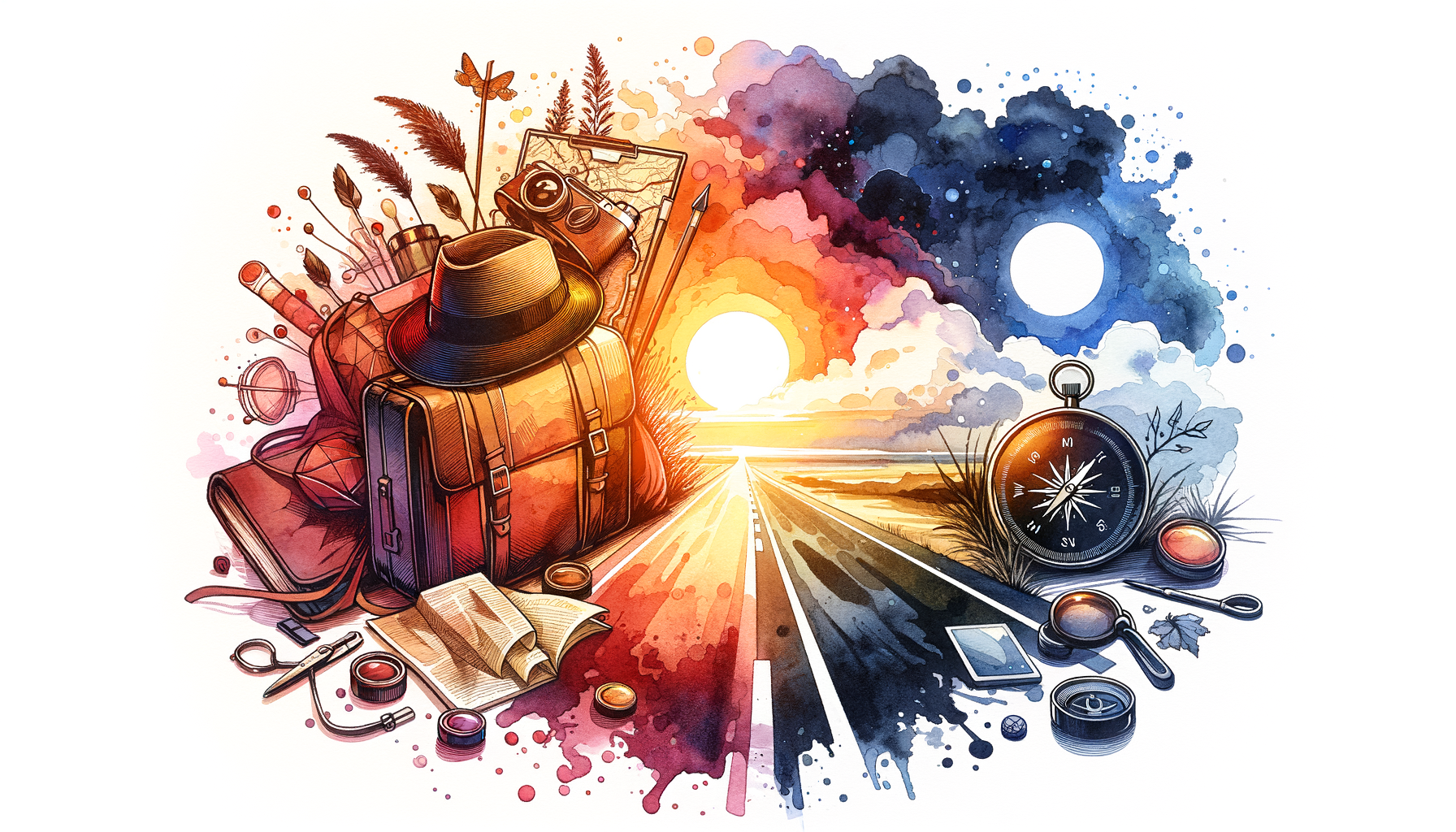You Can’t Run from Yourself (Not Even in New Zealand)
I learned a lot about myself the day I almost fell off a horse in Costa Rica. It was my first time outside the U.S., and despite growing up in Wyoming, I was apparently better at staying on a saddle above the Tetons than atop the surprisingly unpredictable horses of Central America. Face-to-face with a drop into a banana plantation, I asked myself two questions: one, how did I get here? Two, would my mom still call this adventure “character-building” if I didn’t make it home?
Later that night, as I was nursing tequila in a beachside cantina, all in one piece but existentially bruised, I realized something: travel doesn’t teach you who you want to be. It introduces you to who you already are—whether you like it or not.
1. You Are the Common Denominator in Your Life
Let’s get one thing straight: wherever you go, there you are. You can throw yourself across oceans, immerse yourself in vibrant cultures, even shed your Wi-Fi signal for a week, and still, you’ll find yourself wrestling with the same things you did back home. For me, that’s my tendency to not ask for help until I’m seconds from disaster. Cue the runaway horse.
This simple truth hit me harder than a Wyoming hailstorm when I was in New Zealand volunteering at an animal sanctuary. One afternoon, I spent an hour trying to wrangle a cranky sheep into a pen with the energy of a man who thought he knew better than locals. Finally, the sanctuary owner sauntered over, gave the sheep two quick claps of her hands, and had it where it needed to be in under ten seconds. “You could’ve asked earlier,” she said with a smirk.
I’ve since come to see travel as a mirror. The same habits, quirks, and weaknesses you have at home? They’ll follow you to paradise. But here’s the twist: travel gives you enough distance from your routine to actually notice them.
Tip: Take a moment to track the patterns that emerge when you're in new environments. Are you quick to lean on others or too determined to go it alone?
2. Discomfort Is the Price of Awareness
Here’s a hard truth I had to learn over beers in an open-air Thai bar: personal growth is rarely served with a drink umbrella. It’s more like realizing—halfway through a trek—that your backpack is too heavy because it’s stuffed with stuff you didn’t even need.
Travel will force you to sit in discomfort—whether it’s sweating through an un-air-conditioned dinner in Medellín or trying to piece together phrases in a language you only practiced on Duolingo the night before your flight. But that discomfort? That’s where the real magic happens. It peels back the layers of who you are when no one’s watching.
When I spent six days on a backcountry trek through Patagonia, I gave myself exactly one meltdown per day. The combination of high altitude, foreign terrain, and miles of bad decisions (why did I pack two novels?) left me shaky and raw. But each day, I got up. I kept going. And by the end, I realized I was more resilient than I’d ever given myself credit for.
Tip: Use discomfort as a signal, not a deterrent. If you're willing to embrace it, you’ll emerge stronger—and with way better stories than the person who stuck to poolside piña coladas.
3. The Way You Treat Others Reflects How You Feel About Yourself
Nothing tests your capacity for grace like sharing an overnight sleeper bus in Costa Rica with a family of five chickens. The old me might’ve spent hours grumbling about the lack of personal space (or the persistent clucking). But what I’ve come to learn on the road is that every single person—and chicken, apparently—is navigating their own journey. Sometimes literally.
I’ve tried to carry this awareness into relationships back home. It turns out the way you treat strangers when you’re traveling is a pretty clear indicator of how you’ll treat your nearest and dearest. I used to be someone who carefully curated his space—which is a polite way of saying I could be a bit controlling. But a lot of unexpected lessons in empathy (including helping a local fix her fishing boat in Bali) taught me to loosen up and meet people where they are instead of where I think they should be.
Tip: Relationships—whether romantic or platonic—thrive when you learn to adapt to circumstances instead of demanding perfection.
4. Your Comfort Zone Isn’t a Personal Fortress
I used to think of myself as ruggedly self-sufficient—it’s basically one of the Wyoming state-approved character traits. But traveling shows you have limits you didn’t even know existed. This reality first hit me while trying to order a sandwich in a Parisian café. Having accidentally asked for “pickle snails” instead of “pickles and ham,” I wound up the star of an international comedy special starring bemused Parisians.
But something wonderful happened. By stumbling, laughing (mostly at myself), and trying again, I found connection. Authenticity became my key to unlocking the experiences I’d sought in the first place. The more I owned my awkwardness, the more I felt accepted—not just by others but by myself.
So now, when I mess up? I roll with it. Imperfection is disarming, endearing, and—oddly enough—liberating in any context, from navigating a foreign metro system to meeting someone new for a first date.
Tip: Lean into the moments when you feel clumsy in unfamiliar situations. They’re not setbacks—they’re what make your story worth telling.
5. Every Adventure is a Relationship Test (with Yourself)
Here’s the thing: travel is one of the few arenas where you find yourself both profoundly alone and hyper-connected all at once. It’s you versus a foreign landscape, negotiating airline delays, lost wallets, or public transportation systems that seem to exist only to confuse you.
You learn what kind of partner you are to yourself. Are you the type to berate yourself for messing up or the type to shrug, laugh it off, and adjust the plan? When I got stranded on a rural Greek island thanks to a ferry snafu, I panicked for 20 minutes. But as the sun set, I sat by the water, let myself breathe deeply, and figured out how to enjoy an unplanned night under the stars. It turns out I’m better company to myself than I thought.
Tip: Treat yourself the way you hope someone else might—patiently and with a sense of humor.
Conclusion: Travel Light, in Every Sense of the Word
If there’s one lesson I’ve learned while pulling my overstuffed suitcase through every type of terrain imaginable, it’s this: you don’t need as much as you think you do. That goes for everything—whether it’s dragging multiple pairs of boots you’ll never wear or carrying emotional baggage that weighs you down.
The further you go, the more you realize you already have what you need. Travel doesn’t give you a new identity. It just strips away the noise so that you finally see yourself clearly—whether you’re clinging to a saddle in Costa Rica or sipping espresso at a Parisian café.
And honestly? Who you are is more than enough.




















